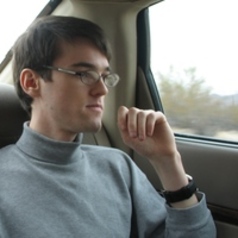
G. Owen Schaefer
Research Fellow in Biomedical Ethics, National University of Singapore
I am a philosopher by training, specializing in applied ethics. I have published on a variety of topics in that area, including research ethics, food ethics, human enhancement, and in vitro fertilization. Other interests include clinical ethics, social and political philosophy, politics, and journalism ethics. I previously blogged at Oxford's Practical Ethics in the News, and run the CENTRESBlog at the Centre for Biomedical Ethics, National University of Singapore (http://blog.centres.sg).
The views and opinions I express are my own and do not represent the views and opinions of the National University of Singapore or any of its subsidiaries or affiliates.
Less ![]()
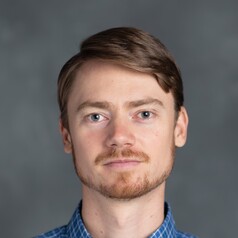
Gabe Schwartzman
Assistant Professor of Geography and Sustainability, University of Tennessee
Dr. Schwartzman is a human geographer who studies economic development and environmental politics. His research focuses on rural economic transitions and the social implications of decarbonization. In his current research projects, he studies the decline of the coal industry in Central Appalachia and the politics surrounding economic transition in the Appalachian region.
He has two active research projects: one studying the human dimensions of emerging forest carbon offset regimes in Central Appalachia; and a second project tracing the financial geographies of coal mine bankruptcies, bond forfeiture, and the looming crisis of funding the environmental reclamation of strip mines.
Schwartzman has studied the politics of development, climate change, and economic transition on the US Gulf Coast and in the Brazilian Amazon. His scholarship contributes to the fields of political ecology, development studies, and studies of race and gender.
Less ![]()
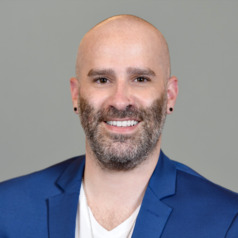
Gabriel Acevedo
Assistant Professor of English Education, Arizona State University
Gabriel T. Acevedo Velázquez has been a dancer, actor, podcaster, film critic, researcher, academic, and educator for over ten years. He holds degrees from the University of Puerto Rico and The Pennsylvania State University. He has taught every grade from kindergarten to college-level courses. He resides in Arizona, where he is an Assistant Professor of English Education at Arizona State University. He holds his identity as a Puerto Rican, born and raised, and a gay man close to his heart. This allows him to view the world through such prisms and enables those lenses to to elevate his work to bring those experiences to the forefront. Engaging with literature, pop culture, teaching methods, and queer and Latinx identities, he wishes to close gaps within critical pedagogy.
Less ![]()
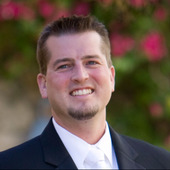
Gabriel Alsenas
Director: SouthEast National Marine Renewable Energy Centre, Florida Atlantic University
Less ![]()
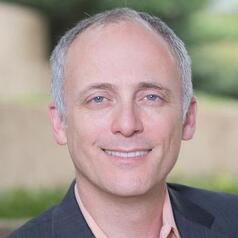
Gabriel Eckstein
Professor of Law, Texas A&M University
Gabriel Eckstein is a professor of law at Texas A&M University School of Law where he teaches courses on US and international water, environmental, and natural resources law. He also serves as Director of the law school's Energy, Environmental & Natural Resources Systems Law Program and its Environmental & Natural Resources Systems Law Clinic. At the university, he holds affiliations with the University's Water Management and Hydrological Science Program, Energy Institute, Bush School of Government and Public Service, and Center for Health Systems & Design at the College of Architecture. Prior to joining Texas A&M University, Professor Eckstein held the George W. McCleskey Chair in Water Law at Texas Tech University where he also directed the Texas Tech University Center for Water Law & Policy. Before that, he served as Senior Counsel for CropLife America, an agrichemical trade association, working on environmental regulation and legislative matters, and as a litigator in private practice working on environmental, toxic tort, and asbestos cases.
Professor Eckstein has served as an expert advisor and consultant on US and international environmental and water issues to various organizations and programs, including UNDP, UNEP, UNESCO, UNFAO, UN International Law Commission, The World Bank, Geneva Initiative, US Agency for International Development, World Commission on Dams, Organization of American States, and other organizations. most recently, he represented Bolivia before the International Court of Justice in a dispute with Chile over a transboundary river.
Currently, Professor Eckstein serves as Chair of the Executive Council of the International Association for Water Law. Previously, he served as President and Treasurer of the International Water Resources Association. He also is an Associate Editor of the journal Brill Research Perspectives: International Water Law, and is a member of the Editorial Board of the Journal of Water Law.
Professor Eckstein holds LL.M. and JD degrees from American University’s Washington College of Law, M.S. in International Affairs from Florida State University, and a B.S. in Geology from Kent State University. He is admitted to the bars of New York, West Virginia, and the District of Columbia.
Less ![]()
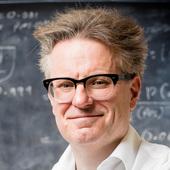
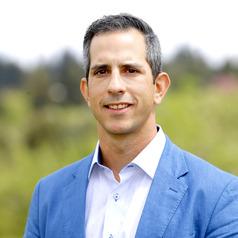
Gabriel Fabreau
Assistant Professor - General Internal Medicine; Depts. of Medicine and Community Health Sciences | Cumming School of Medicine, University of Calgary
I am a clinician-scientist and an Assistant Professor in the Departments of Medicine and Community Health Sciences at the University of Calgary. I completed my medical training in Internal Medicine in Calgary, an academic fellowship in General Internal Medicine at Harvard Medical School and Master of Public Health at the Harvard T.H. Chan School of Public Health.
My research interests include health services and public health research with a particular focus on refugee health and high-needs socially vulnerable populations. I co-lead a research program focused on the health and healthcare of recently resettled refugees, aylum claimants, and other newcomers inn Canada (www.RefugeeHealthYYC.ca).
Less ![]()

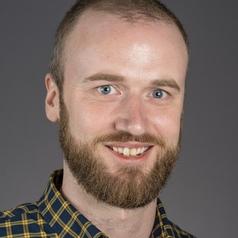
Gabriel Lade
Associate Professor of Economics, Macalester College
Professor Lade’s research broadly focuses on the need for and efficiency of environmental policies in the energy and agricultural sectors. Recent research projects include studying how gasoline stations’ market structure impacts pass-through of subsidies for high-blend ethanol fuels; the impacts and efficiency of natural gas flaring restrictions on oil producers in North Dakota; and the effects of air pollution on visitation at U.S. National Parks. Ongoing work includes studies of the Flint water crisis on local housing markets and avoidance expenditures; impacts of hurricanes on gas gouging behavior; and impacts of behavioral interventions on residential water demand in drought-prone Southern California. Professor Lade has advised several state and federal agencies and his research has been funded by sources including the U.S. Department of Agriculture, the Alfred P. Sloan Foundation, Resources for the Future, and the National Bureau of Economic Research. He teaches Intermediate Microeconomic Analysis and Industrial Organization.
BA: Economics and International Affairs, The George Washington University, 2009
MA: Economics, Rutgers University, 2011
PhD: Agricultural and Resource Economics, University of California, Davis, 2015
Less ![]()
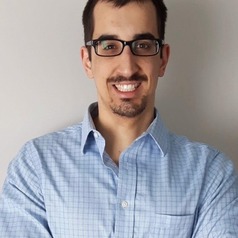
Gabriel Moisan
Professeur, Département des sciences de l'activité physique, Université du Québec à Trois-Rivières (UQTR)
Gabriel Moisan est professeur au Département des sciences de l'activité physique de l'Université du Québec à Trois-Rivières depuis 2020. Sa programmation de recherche porte sur l’évaluation orthopédique des patients ainsi que sur la biomécanique du pied et de la cheville lors de la locomotion, avec un accent particulier sur la façon dont les orthèses plantaires modifient la biomécanique des membres inférieurs.
Gabriel Moisan est titulaire d’un doctorat de premier cycle en médecine podiatrique et d’une maîtrise en sciences de l’activité physique de l'Université du Québec à Trois-Rivières, Canada, ainsi que d'un doctorat en sciences biomédicales de l'Université de Montréal, Canada. Il a également complété un postdoctorat à l’University of Salford au Royaume-Uni et un postdoctorat à l’Université Laval au Canada. Ses recherches ont permis de développer des connaissances importantes sur de nouvelles méthodes pour effectuer l’évaluation orthopédique des patients ainsi que les déficits biomécaniques chez les personnes atteintes de troubles neuromusculosquelettiques lors de la locomotion et sur la capacité des supports externes (p. ex., orthèses plantaires) à atténuer ces déficits. En plus de sa carrière de chercheur, il est également podiatre depuis 2014.
Less ![]()
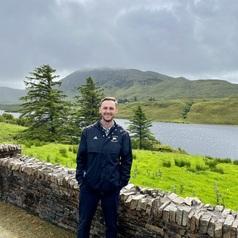
Gabriel Paxton
PhD Candidate, Boston University
Gabriel Paxton is a PhD candidate in the Religion in Philosophy, Politics, and Society area of specialization at Boston University. He graduated from Winthrop University with a B.A. in Political Science and earned his M.A. with distinction from Central European University in Nationalism Studies. His research interests include religious nationalism, populism, and the study of global progressive and left-wing political movements. Currently, his research looks at the history of left-liberal Christian politics in Canada and the United States during the early 20th century. Aside from his studies, Gabriel has also worked on numerous political campaigns in both the United States and Canada. He has also taught courses in American government and history at Winthrop University. In his spare time, he enjoys golfing, hiking, and traveling.
Less ![]()
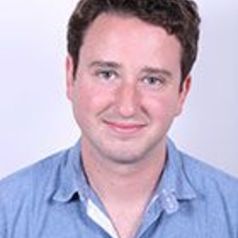
Gabriel Zucman
Associate Professor of Economics, University of California, Berkeley
Gabriel Zucman is the Director of the James M. and Cathleen D. Stone Center on Wealth and Income Inequality at the University of California at Berkeley. He received his PhD in 2013 from the Paris School of Economics and taught at the London School of Economics before joining the Berkeley faculty in 2015. His research focuses on the accumulation, distribution, and taxation of global wealth and analyzes the macro-distributional implications of globalization. He was awarded the Bernácer Prize and a Sloan Research Fellowship in 2019.
Less ![]()
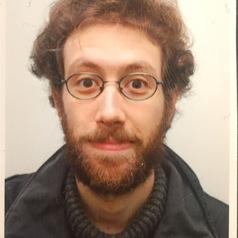
Gabriel Doménech González
Profesor Ayudante Específico, Departamento de Comunicación, Facultad de Humanidades, Comunicación y Documentación (UC3M), Universidad Carlos III
Doble Graduado en Periodismo y Comunicación Audiovisual por la Universidad Carlos III de Madrid en 2014. Miembro del grupo de investigación TECMERIN (2017-actualidad). Doctor en Investigación en Medios de Comunicación por la misma institución en 2021. Programador en el festival FILMADRID (2017-actualidad) y miembro de la Comisión de Ayudas Selectivas del ICAA (2021-2022).
Less ![]()
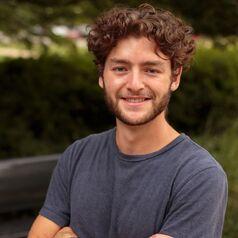
Gabriel E. Hales
Ph.D. Candidate and Research Assistant, Michigan State University
Gabriel (he/him) is a third-year Ph.D. Candidate in the Department of Media and Information, College of Communication at Michigan State University. He works closely with Keith Hampton, Ph.D. as a research assistant for the Quello Center (Aug. 2022 to present), including advanced statistical analysis, data modeling, management, and cleaning (SPSS, MPlus) of two large surveys of rural Michigan students and their Internet use. He has likewise co-taught as a graduate teaching assistant and instructor of record for numerous undergraduate courses within the department.
Gabe’s research primarily focuses on the relationships between students’ academic achievement/social networks and their access, use, and skillsets related to digital technologies, and how such relationships may be limited by or framed within the field of digital inequalities. He specializes in advanced statistical analyses, such as path analysis, multi-level modeling, and social network analysis, while also having experience in qualitative methods like ethnographic observations and in-depth interviewing, particularly related to adolescent students and their digital media use. His co-authored work has been accepted at conferences such as the National and International Communication Associations and the American Sociological Association, has co-authored an in-depth report on student broadband access over the COVID-19 pandemic with the Quello Center, and has multiple manuscripts in progress, under review, and published with peer-reviewed journals.
Prior to his current degree, Gabe completed his Master of Arts (2021) and Bachelor of Arts (2020) in Media and Information at Michigan State University. His thesis focused on the reciprocal norms associated with varying dimensions of culture. If not working on projects related to his research, he enjoys marathon running, listening to podcasts (mostly while running), and spending time outside with his dog.
Less ![]()
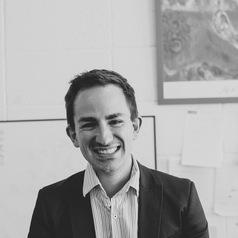
Gabriel Garcia Ochoa
Global Studies, Translation and Comparative Literature, Monash University
Dr Gabriel García Ochoa was born in Mexico City, and has lived in Australia for almost twenty years. He is the Director of the Global Immersion Guarantee at Monash University. Gabriel is a writer, academic, and professional translator, with a special interest in magical realism. He studied at Harvard University's Institute for World Literature, where his PhD focused on the works of Jorge Luis Borges. In 2019 he published his first novel, The Hypermarket.
Less ![]()
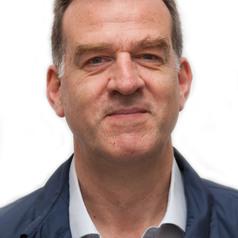
Gabriel Insausti Herrero-Velarde
Filología. Literatura moderna, Universidad de Navarra
Gabriel Insausti (San Sebastián, 1969) ha publicado novela (El hombre inaudible, El agua alta, diarios (Días en Ramplona, El oro del tiempo), literatura de viajes (En la ciudad dormida, Rumor del río), poesía (Últimos días en Sabinia, Destiempo, Vida y milagros, Línea de nieve, Azul distinto), aforismos (Preámbulos, El hilo de la luz, saque de lengua, Estados de excepción, Maneras de esperar), ensayo (Récord de permanencia) y crítica (La presencia del romanticismo inglés en Cernuda, Tras las huellas de Huston, La distancia y el tiempo: escritos sobre Cernuda, La trinchera nostálgica: escritores británicos en la guerra civil española, Miguel Hernández, la invención de una leyenda, Tierra de nadie: el poeta inglés y la gran guerra, Verdad y belleza: la pasión de Gerard Manley Hopkins, La lira de Linos: cristianismo y cultura europea, Pasos en el atrio: Kafka, Roth y Buber y Brodsky y la Navidad: hacia otra Rusia).
Ha editado los volúmenes colectivos Gaur: 50 años (2018), Unamuno en Hendaya (2020) y Figura con paisajes. Baroja en Navarra (2023). Ha traducido a Wilde, Waugh, Coleridge, Lamb y Hopkins, entre otros autores, y preparado ediciones bilingües de la poesía de Coleridge, Auden, Newman, Day Lewis, Spender, Owen, Thomas y W. H. Davies.
Ha recibido premios de poesía (“Gerardo Diego”, “Arcipreste de Hita”, “Manuel Alcántara”), de novela (“Ateneo Jovellanos”), de crítica literaria (“Amado Alonso”) y de aforismos (“José Bergamín”). Fue finalista del Premio nacional de Literatura en 2002 y del Premio Herralde de novela en 2014.
Es Doctor en Filología Hispánica, Doctor en Filología Inglesa, Master of Arts en Historia del Arte y Master of Arts en Filosofía. Licenciado en Filología Hispánica y Bachelor en Filosofía. Fue Premio Extraordinario de Doctorado en Hispánica. En la actualidad es profesor de Literatura Universal en la Universidad de Navarra.
Less ![]()
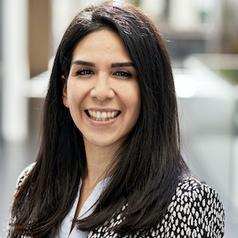
Gabriela Contreras
Assistant Professor, Radboud University
"Bridging the inequality gap, one social network at a time."
Gabriela is a social networks, multidisciplinary researcher. Her interest in social justice has led her to develop a research identity lying at the intersection of sociology, economics, business, gender issues, regulation, and sustainability. She has researched questions ranging from the adoption of environmental codes of conduct by financial institutions to the role of affirmative action programs in women's representation in top management. The multidisciplinary spirit of her research is best reflected in the journals where her work has been published which includes The Lancet, World Development, and PLoS One.
Less ![]()

Gabriela Ghisi
Affiliate Scientist, KITE Research Institute, Adjunct Professor, University of Toronto
Dr. Gabriela Ghisi is an Affiliate Scientist at the KITE Research Institute, Toronto Rehab (Canada). Her research focuses on patient education in chronic disease management and global access to cardiac rehabilitation. In collaboration with cardiac rehab programs worldwide, she has led the successful development, implementation, and evaluation of an evidence-based patient education curriculum in 10 countries. She has published >140 papers, authored clinical practice guidelines, and developed cardiac rehabilitation-related scales. Gabriela is also a member of the executive committee of the International Council of Cardiovascular Prevention and Rehabilitation (ICCPR).
Less ![]()
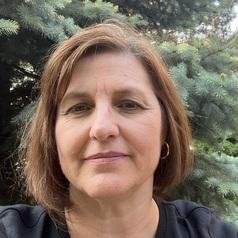
Gabriela Mastromonaco
Adjunct Professor, Biomedical Sciences, University of Guelph
I have spent 25 years studying comparative reproductive biology and developing techniques for assisted reproduction in domestic and wildlife species. Along with overseeing the Reproductive Science research program, I am currently the Senior Director of Wildlife Science at Toronto Zoo.
Less ![]()
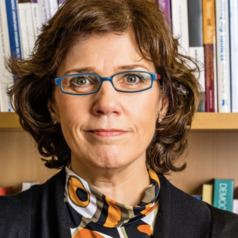
Gabriele Abels
Jean Monnet Professor for Comparative Politics & European Integration, University of Tübingen
Since 2007 Gabriele Abels is professor for comparative politics and European integration at the Institute of Political Science. She holds a Jean Monnet Chair since 2011 and was Director of the the Jean Monnet Centre of Excellence PRRIDE (2015-2018). From 2012 to 2015 she was president of the German political science association (DVPW). She was visiting fellow at the University of Osnabrück, the European University Institute in Florence, the University of Missouri-St.Louis, USA, St. Petersburg University, Russia, and Harvard University, USA.
Her research areas include political systems of EU member states, political system of the European Union, democratisation of the European Union & participation and comparative parlamentarism.
Less ![]()
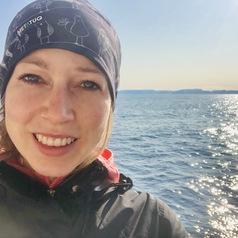
Gabrièle Deslongchamps
Professionnelle de recherche, Université Laval
Je suis professionnelle de recherche à l'Université Laval pour le laboratoire biome supervisé par le chercheur et professeur Philippe Archambault
Less ![]()
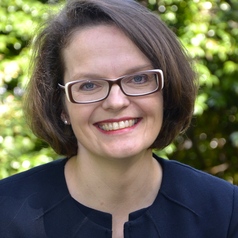
Gabriele Suder
Principal Fellow, Faculty of Business & Economics/Melbourne Business School, University of Melbourne
Prof Gabriele Suder is Principal Fellow at FBE/Melbourne Business School. She is expert at the European Union, UNCTAD and JETRO (IDE). She has also served as professor of International Business at SKEMA Business School and as visiting fellow or expert at other leading business schools including the Australian National University (ANU/ANUCES) and Aalto University, and for ESCP Europe, GGS and other leading universities.
Gabriele is Director, International Relations, at the University of Melbourne, Australia.
Her work has been presented at venues reaching from Harvard Kennedy School to the United States Congress, UNCTAD, OECD, WEF and the European Commission. She has been working with and advising multinationals (in particular, in the IT, automobile and engineering sectors) as well as numerous SMEs in this field, from the USA to India and China, from Finland to Japan and Australia.
She is author of ten international business books, that have won several book awards. She is also author of award-winning case studies, media and research articles, and of the YouTube/DailyMotion video series 'Doing Business in Europe' and the iTunes series 'Multicultural Management'.
Her main research interests focus on internationalisation, regionalisation/market integration impacts on corporate location strategy, LoF and public affairs management. She has published in media including Le Figaro, Business Week, The Japan Times and The Hindu, and speaks at live TV debates such as "Ce Soir ou jamais" (France 3).
Professor Suder is known for her avant-gardist research into the impact of global crisis on international business strategy. She has conducted research projects studying the impact of terrorism, in Europe, the USA and Afghanistan.
Less ![]()

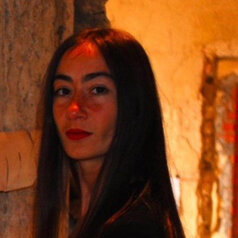
Gabriella Daris
PhD Candidate in Philosophy, Kingston University
Gabriella Daris is completing a PhD in Philosophy at the Centre for Research in Modern European Philosophy (CRMEP), Kingston University London. Her doctoral thesis problematizes the instruction/institution dialectic in a 1960s context and examines critically the ontological distinctiveness, metaphysical importance, and social significance of Yoko Ono’s conceptual art. She works within a critical theoretical tradition based on a transdisciplinary conception of philosophy used as an apparatus for a transformative dynamic of art criticism. Her interests include aesthetics and philosophy of art, art theory, continental philosophy, and Critical Theory, with an art-historical focus on late modern, avant-garde and contemporary art.
She has held Visiting lectureships at Yale University (2023) and the University of Belgrade (2022), and a Visiting Research Fellowship at Waseda University (2022). In 2023, she designed an extracurricular philosophy of art course on the concepts of freedom and play in Friedrich Schiller and Yoko Ono and delivered it to state secondary schools across London. Formerly a critic at Blouin Artinfo and Modern Painters, she is the curator of Yoko Ono: Looking For… (2019) and the convenor of the first international symposium on Yoko Ono held jointly at the University of Cambridge and Anglia Ruskin University in 2019.
Her academic research and curatorial projects have been supported by the Getty Foundation; the Henry Moore Foundation; the Great Britain Sasakawa Foundation; the Emily Harvey Foundation; the British Society of Aesthetics; the British Association for Japanese Studies; the Association for Art History; and the British Council.
Less ![]()
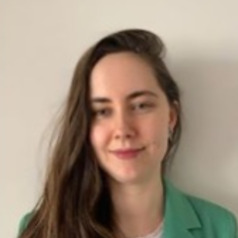
Gabriella King
Associate Research Fellow, Deakin University
Gabriella is an Associate Research Fellow and PhD candidate at Deakin University. Her research has focused on parenting, child emotion regulation and mental health, psychometrics of assessments, and intervention science. Gabriella has contributed to projects that have developed online parenting interventions that aim to improve children's emotion regulation and prevent child mental health issues.
Less ![]()
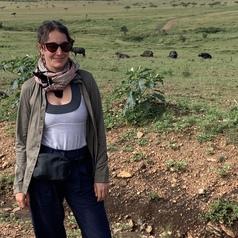
Gabriella Santini
PhD Candidate, Anthropology, UCL
My doctoral research explores human-animal relations in East African wildlife conservation spaces. More broadly, my research interests include political ecology, environmental perception, debates around conservation and extinction, climate change resiliency, economic development, and Indigenous land rights.
Less ![]()
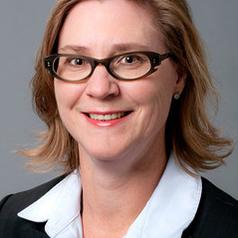
Gabriella Maria Petrick
Research Fellow Ruhr University Bochum, University of Stavanger
Gabriella M. Petrick, PhD is a historian of science and technology focusing on food, food systems, sustainability and the sensory history of taste. Her current historical project is a global history of wine industrialization in the 20th and 21st centuries entitled 'Red and White: The Globalization of Wine in the Anthropocene.'
Less ![]()
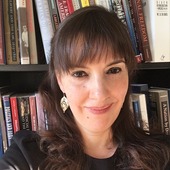
Gabrielle Clark
Assistant Professor of Political Science and Public Law, California State University, Los Angeles
Less ![]()
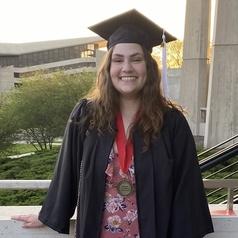
Gabrielle Dubansky
Master's Candidate in Molecular, Cellular and Developmental Biology, Iowa State University
I am a graduate student in the Molecular, Cellular, and Developmental Biology (MCDB) program at Iowa State University. My research is focused on a molecular pathway that contributes to blood development in zebrafish. I love science communications and sharing what I've learned with others! I've taken classes on science and scientific communications, as well as many other writing courses during my time at ISU.
Less ![]()
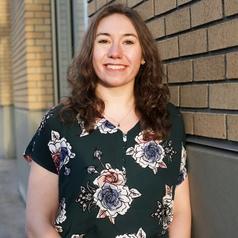
Gabrielle Edwards
PhD Candidate in Curriculum Studies, University of British Columbia
Gabrielle is a PhD candidate and SSHRC doctoral fellow at the University of British Columbia in the Department of Curriculum and Pedagogy Studies. Her research interests revolve around whole school approaches to school food education, food literacy and food citizenship. Gabrielle has a background in agriculture and food security holding a B.Sc. in Agriculture from the University of Saskatchewan and a M.A. in Human Development and Food Security from Roma Tre University in Italy. Gabrielle has a background working in the non-profit sector through her work as a Program Coordinator with Agriculture in the Classroom – Saskatchewan and as a Volunteer Coordinator with Allan Brooks Nature Centre. She is also involved in food security advocacy work and has been volunteering with the Canadian Food Grains Bank since 2016. Gabrielle is passionate about about food and environmental education and empowering the next generation to be actors of change in their communities.
Less ![]()
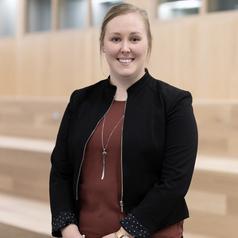
Gabrielle Fréchette-Boilard
Doctorante en psychoéducation, Université du Québec à Trois-Rivières (UQTR)
Je suis doctorante en psychoéducation à l'Université du Québec à Trois-Rivières depuis 2022 et active dans le monde scientifique depuis 2019. J'ai acquis mon expertise en sommeil dans le cadre de ma maîtrise et depuis l'an dernier, j'ai un grand intérêt pour la vulgarisation scientifique. Étant également psychoéducatrice spécialisée en petite enfance depuis 2022, cette profession me garde au fait des plus récents sujets cliniques, nourrissant alors mon désir de redonner à la population québécoise par le biais de la vulgarisation de contenus scientifiques.
Less ![]()
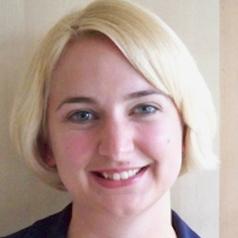
Gabrielle Gaustad
Associate Professor of Sustainability, Rochester Institute of Technology
Dr. Gabrielle Gaustad teaches courses in multi-criteria decision analysis, sustainable building metrics, and applied programming for the MS, Ph.D., and M.Arch. programs. She conducts research exploring the environmental and economic trade‐offs of recycling and resource recovery at end‐of‐life. In 2015, she was inducted into the RIT Principal Investigator Millionaire Club and was nominated for the Eisenhart Outstanding Teaching Award. In 2012, she received the GIS College Research Award for Excellence in Research. While her courses are challenging, the success of her students is a direct result of her passion and knowledge for the materials. She is well organized and encourages discussion from the students. During her free time, Dr. Gaustad can be found in the great outdoors snowboarding, windsurfing, wakeboarding, running, or biking.
Dr. Gaustad received her Ph.D. in Material Science and Engineering and her MS in Computation for Design Optimization at MIT, as well as her BS degree in Ceramic Engineering from Alfred University.
Less ![]()
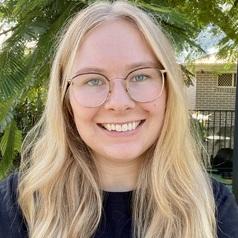
Gabrielle Hunt
PhD Candidate, Australian Catholic University
Gabrielle is a registered psychologist and she is undertaking a Doctor of Philosophy at Australian Catholic University. Gabrielle's research is on the prevalence and prevention of child sexual abuse and harmful sexual behaviours, with a focus on faith-based settings and implementing evidence-based prevention strategies. Her research and ongoing work are informed by her experience as a psychologist working with survivors of child sexual abuse as well as young people displaying harmful sexual behaviours.
Less ![]()
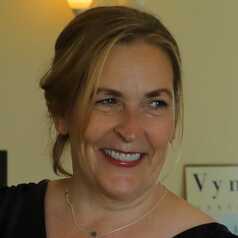
Gabrielle Jenkin
Director Suicide and Mental Health Research Group University of Otago Wellington, University of Otago
I am a social scientist with training in epidemiology and public health. I work at University of Otago Wellington and, as Manager of Evaluation and Research for Allen and Clarke.
For the past 20+ years I have undertaken quantitative, qualitative, mixed methods and transdisciplinary research on critical social and public health issues documented in 50+ peer reviewed publications and 20+ research reports.
My work has included qualitative interview-based research, media and interest group analyses, suicide prevention, analyses of multiple government agency datasets and files, panel surveys, longitudinal cohort studies, gender and cultural analyses.
I have been on the editorial board of several scientific journals including being guest editor for a special issue on Innovations in Architecture for Mental Health (IJERPH) and I have served on the NZ National Health and Disability Ethics Committee. I also continue to supervise PhD students in mental health research at the University of Otago.
Recent research has focused on acute mental health care based on a 4-year transdisciplinary research project into the architectural, social, political and therapeutic dimensions of acute mental health facilities in New Zealand.
Less ![]()
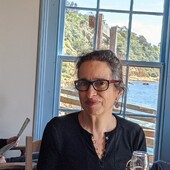
Gabrielle Meagher
Professor Emerita, School of Society, Communication and Culture, Macquarie University
Less ![]()
- Market Data



















